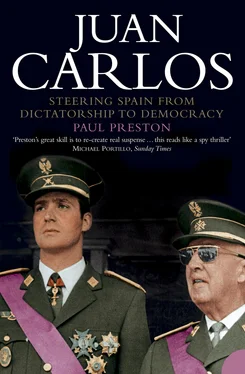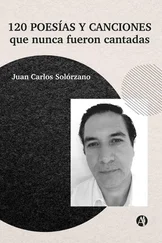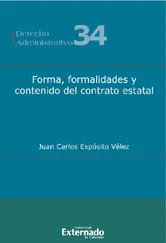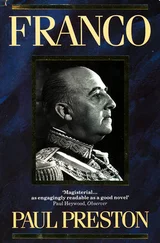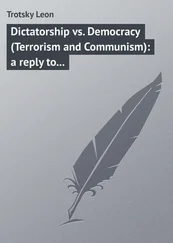At the end of March 1957, shortly before the first anniversary of the death of Alfonsito de Borbón, the Conde de Ruiseñada had a bust of him made and placed in the grounds of El Alamín. A number of young monarchists were invited and Luis María Anson, a brilliant young journalist and leader of the monarchist university youth movement, assuming that the bust would be unveiled by Juan Carlos, expressed concern that the occasion would be too painful for him. Anson was astonished to be told by Ruiseñada that the Caudillo had already instructed him to ask Juan Carlos’s cousin, Alfonso de Borbón y Dampierre, to preside at the ceremony. ‘I want you to cultivate him, Ruiseñada. Because if the son turns out as badly for us as his father has, we’ll have to start thinking about Don Alfonso.’ Anson reported the conversation to Don Juan. Until this time, the pretensions of Don Jaime and his son had not been taken entirely seriously in Estoril. Henceforth, there would be an acute awareness of the dangers of Franco applying the Ley de Sucesión in favour of Alfonso de Borbón y Dampierre. 65
In May 1957, speaking with Dionisio Ridruejo, a Falangist poet who had broken with the regime, López Rodó revealed his concerns about the fragility of a system dependent on the mortality of Franco. López Rodó wanted to see the Caudillo’s personal dictatorship replaced by a more secure structure of governmental institutions and constitutional laws. Allegedly declaring that, in the wake of the recent cabinet changes, ‘the personal power of General Franco has come to an end’, López Rodó hoped to have Juan Carlos officially proclaimed royal successor while Franco was still alive. It was rather like Ruiseñada’s plan, except with Juan Carlos instead of Don Juan in the role of successor. Until 1968, when the Prince would reach 30, the age at which the Ley de Sucesión permitted him to assume the throne, Franco would remain as regent. To prevent the Head of State, King or Caudillo, suffering unnecessary political attrition, there would be a separation of the Headship of State and the position of Prime Minister. 66 López Rodó’s optimism in this respect would be seriously dented in November 1957. At that point, he came near to being dismissed when Franco noticed that the decrees emanating from the Presidencia del Gobierno were limiting his powers. 67 López Rodó’s plans for political change had to be introduced with extreme delicacy if the Caudillo were not to call an immediate halt to them. That, together with the hostility of the still powerful Falangists to the concept of monarchy, ensured that the realization of his programme would take another 12 years.
On 18 July 1957, Juan Carlos had passed out as Second-Lieutenant at Zaragoza. After showing off his uniform in Estoril, he went to visit his grandmother in Lausanne. While in Switzerland, he gave a press interview in which he stated that he regarded his father as King. His declaration of loyalty to Don Juan annoyed the Caudillo. Franco commented to Pacón, ‘just like Don Juan, the Prince is badly advised and he should keep quiet and not speak so much.’ Shortly afterwards, Juan Carlos visited Franco and the three military ministers of the cabinet. It may be supposed that the Caudillo’s displeasure at his comments to the Swiss press was communicated to him because it was a mistake he would never repeat. 68
On 20 August 1957, Juan Carlos entered the naval school at Marin, in the Ría de Pontevedra in Galicia, an idyllic spot marred only by the stench from the nearby paper mills. After facing initial hostility from some of his fellow cadets, his easy-going affability and capacity for physical hardship won them over. 69 While at Marín, he met Pacón, who wrote: ‘I found him an absolute delight. It is impossible to conceive of a more agreeable, straightforward and pleasant lad.’ 70 The Prince was unaware of López Rodó’s schemes for his future. By now, the Catalan lawyer had been asked by Carrero Blanco to draw up a set of constitutional texts which would allow the eventual installation of the monarchy, yet still be acceptable to those who wanted the Movimiento to survive after the ‘biological fact’, as the death of Franco was coming to be called. The question of the transition from the dictator to an installed monarch, and López Rodó’s draft texts, were discussed interminably in the cabinet. However, Franco had no interest in a process that he regarded as no more than fine-tuning the Ley de Sucesión. In any case, he was in no hurry to think about death.
Throughout the summer of 1957, Ruiseñada and López Rodó both tried to arrange an interview between Franco and Don Juan. Whether their agendas in doing so coincided is difficult to say. In any case, they had not consulted Don Juan previously. From Scotland, where he was on holiday, Don Juan refused on the grounds that he could see no sign of progress or reform in the regime. Indeed, on 25 June, he had sent Franco a letter and memorandum in which he stated that there was no point in a meeting until Franco was prepared to make a major step forward in planning for the future. ‘The time for a new interview will be when Your Excellency judges that the opportune moment has arrived for a significant change. Such an interview should not be limited to a mere interchange of news and ideas but rather, unless you think otherwise, should deal with the fundamental issues of Spain’s political future and this is not something that can be improvised in the course of a conversation.’ It is not difficult to imagine how the Caudillo reacted to the suggestion that Don Juan might be in a position to negotiate about the political future. His role, if any, so far as Franco saw it, was simply to swear an oath to accept the Francoist system in toto .
A reference by Don Juan to ‘the interim status of the present regime’ might also have been designed to infuriate Franco. He was equally irritated by the suggestion that the monarchy under Don Juan would deviate from the essential bases of that regime. He replied in early September: ‘The monarchy should be born as a natural and logical evolution of the regime itself towards other institutional forms of state; from a strong, authoritarian state that safeguards the national and moral values in defence of which the Movimiento Nacional emerged, and at the same time, opens the way to those new kinds of state demanded by the needs of the country and which can assure the consolidation and survival of the monarchical regime.’
Franco took the greatest offence at the implication that the future monarchy might change anything at all about his regime. He described Don Juan’s points as ‘unacceptable’ and reminded him that while constitutional plans were in place for a monarchy, nothing had been settled about the individuals who might sit on the throne. The Caudillo made it clear that there was no question whatsoever of a different conception of the State succeeding his regime. As from on high, the all-powerful master lecturing the recalcitrant servant, he wrote: ‘Herein lies the great confusion that has prompted your memorandum, not only in regard to the needs of the country and to the opinion of great sectors of the nation but also in regard to what it means to be able to forge a new legality. Our War of Liberation, with all its sacrifices, meant that the people won with their blood the situation and the regime that we now enjoy. The Ley de Sucesión came, nearly ten years later, to give written form to the legality forged by the man who saved an entire society, re-established peace and law and order and placed the nation firmly on the road to its resurgence. To call into question this long consolidated legality, to harbour reservations about what has been constituted and to try to open a constituent period, would signify a massive suicide. It would give hope to all the ambitions and appetites of the rebellious minorities and would offer foreigners and enemies from outside a new opportunity to besiege and destroy Spain.’ Such a mixture of arrogance and paranoia left no room for dialogue. 71
Читать дальше
